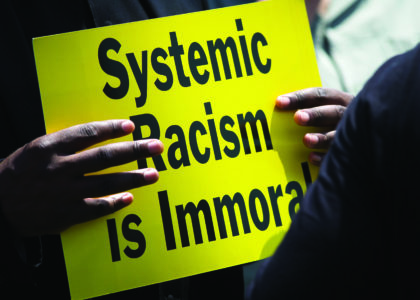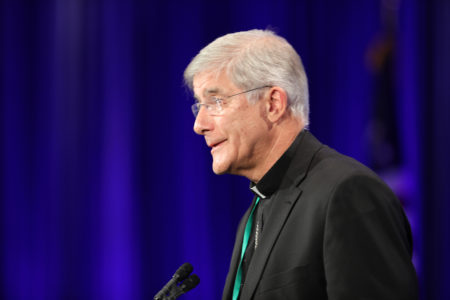Light one candle
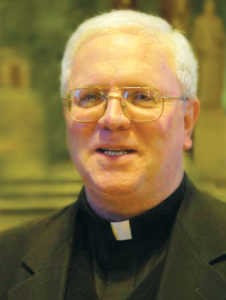
Father Ed Dougherty
By Father Ed Dougherty, M.M.
In 1985, Christopher de Vinck, a high school English teacher from New Jersey, published an article in the Wall Street Journal entitled “Power of the Powerless: A Brother’s Lesson.” His article told the story of growing up with a sibling who was severely disabled, and it garnered immediate responses from people who were inspired by his message of the value of the human person. “I grew up in the house where my brother was on his back in his bed for almost 33 years,” he writes. “Oliver was blind, mute. His legs were twisted. He didn’t have the strength to lift his head nor the intelligence to learn anything.”
Christopher explains that, when their mother was pregnant with Oliver, she was exposed to toxic fumes that made her pass out for a short time. When Oliver was born, he seemed healthy but his parents later discovered that he was blind, and he began to exhibit other problems. A doctor said that Oliver’s ailments would never heal and suggested they place him in an institution. “But he is our son,” their parents said. “We will take Oliver home.”
“Then take him home and love him,” the doctor said.
Along with his parents and siblings, Christopher tended to his brother, feeding him, changing his diapers, bathing him, and keeping him entertained. In so doing, Christopher gained a profound education on valuing the human person, regardless of situation or station in life.
In his article and the subsequent book he wrote entitled “The Power of the Powerless: A Brother’s Legacy of Love,” Christopher recounts the way in which Oliver’s presence made an impact on him at an important moment in his life. In his early 20s, he fell in love with a girl and brought her home to meet his family. He had previously told her about Oliver, and, during her visit, he asked if she would like to meet him. Her answer was a flat, “No.”
Christopher then writes, “Soon after, I met Roe, a lovely girl. She asked me the names of my brothers and sisters. She loved children. I thought she was wonderful. I brought her home after a few months to meet my family. Soon it was time for me to feed Oliver. I remember sheepishly asking Roe if she’d like to see him.
‘Sure,’ she said. I sat at Oliver’s bedside as Roe watched over my shoulder. I gave him his first spoonful, his second. ‘Can I do that?’ Roe asked with ease, with freedom, with compassion, so I gave her the bowl and she fed Oliver one spoonful at a time. The power of the powerless. Which girl would you marry? Today Roe and I have three children.”
Christopher’s story gives witness to the way grace can work through those who are suffering when we open our hearts and our lives to them. Oliver’s presence was a gift to the de Vinck family, because it made them compassionate people. This kind of education in compassion is what all parents should seek for their children. It is an invaluable life lesson that teaches people to recognize the good in others and discern the right path in relationships.
Recalling his brother’s life, Christopher wrote, “Oliver still remains the weakest, most helpless human being I ever met, and yet he was one of the most powerful human beings I ever met. He could do absolutely nothing except breathe, sleep, eat, and yet he was responsible for action, love, courage, insight.”
(For free copies of the Christopher News Note The Enduring Value of People with Disabilities write: The Christophers, 5 Hanover Square, New York, NY 10004; or e-mail: mail@christophers.org)

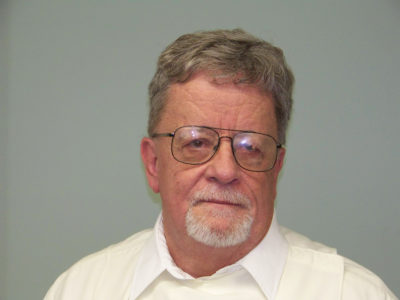
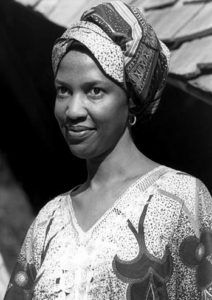 is never an escape from reality,” she also said.
is never an escape from reality,” she also said.